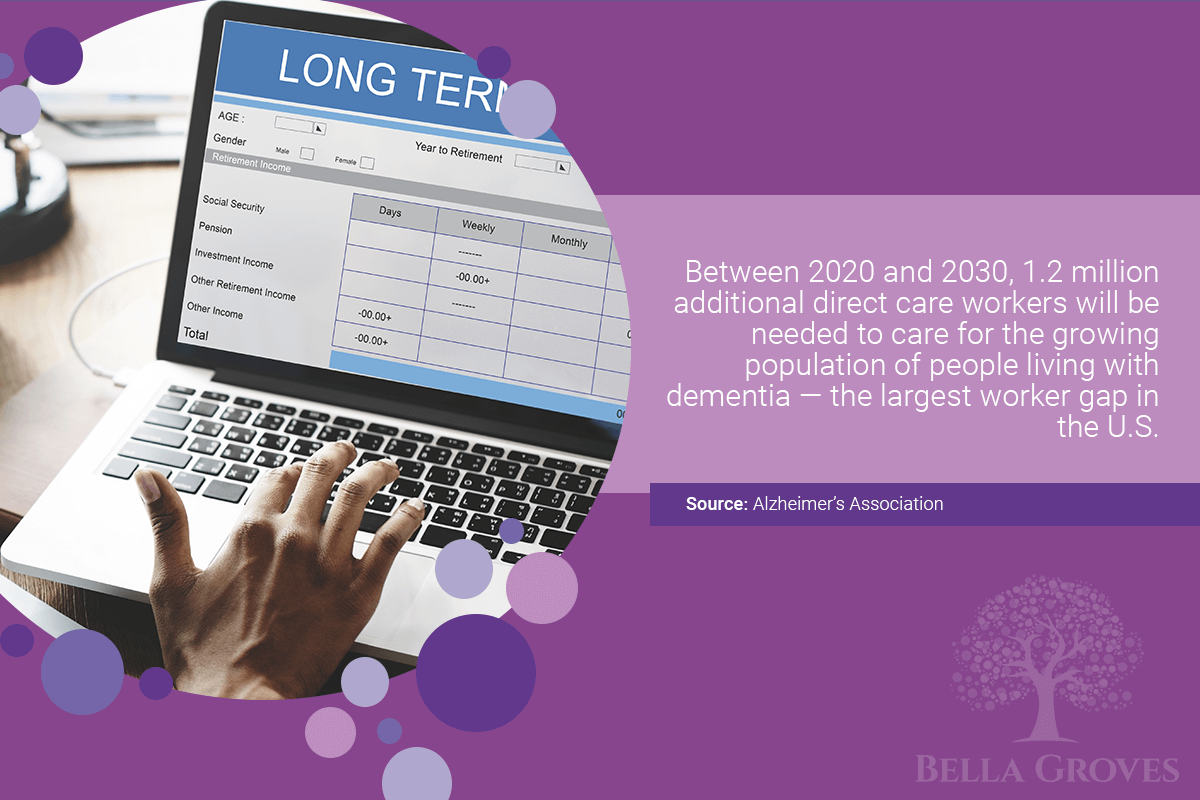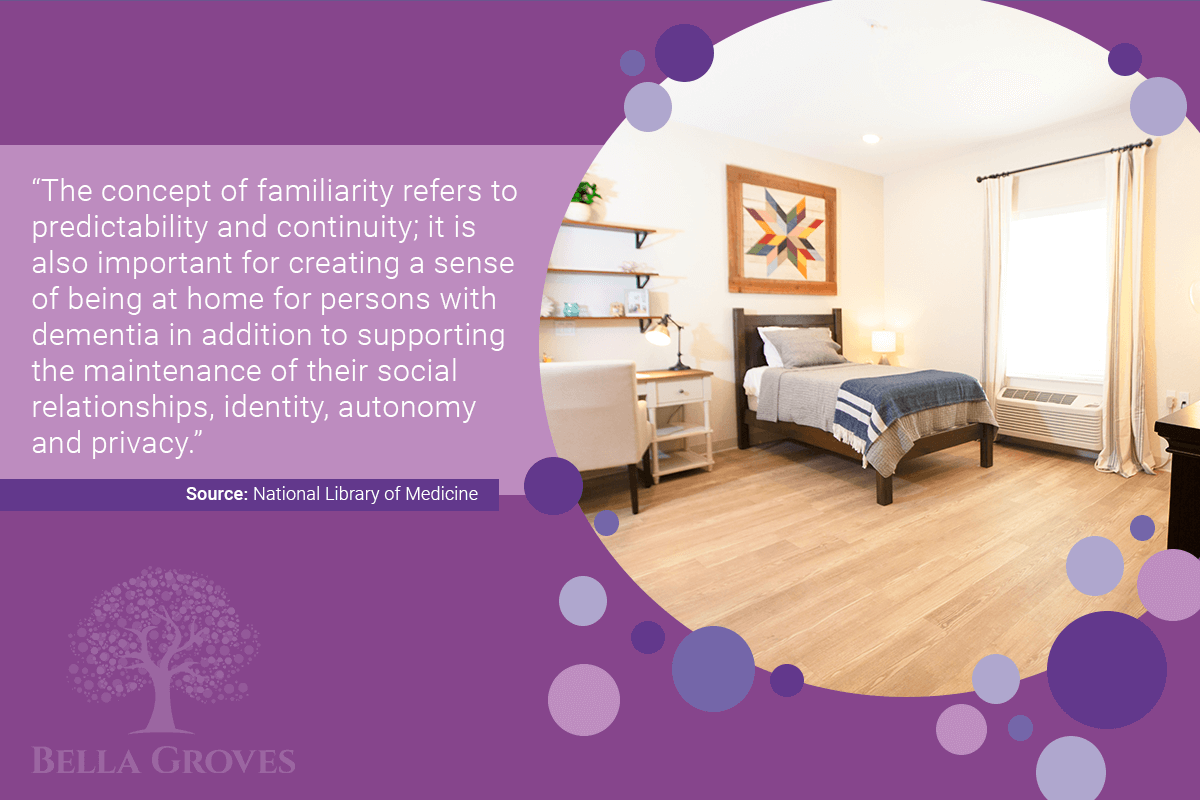
Ways to Pay for Long-Term Dementia Care
Being a care partner to someone living with dementia is an incredibly rewarding experience. However, it can also be emotional and overwhelming at times, leading to feelings of burnout, guilt, and even resentment.
Beyond your mental well-being, as the condition progresses, a person living with dementia will require constant care, attention, and support, and you may not feel you have the knowledge and skills to provide them with the highest quality of life. Fortunately, memory care facilities and communities can support you and your family during this time.
We developed the Bella Groves community to be the kind of place we want our own family members to live in someday. Tucked in a scenic ranch area just north of San Antonio, our residents get the best of the best when it comes to residential dementia care.
If you’re considering long-term dementia care for someone you love, your first concern may be the cost. Below, our team shares ways to pay for residential memory care and how to start your search.
Consider All Your Options
When it comes to covering the cost of long-term memory care, your family has a variety of options to consider, and you may depend on a combination of personal finances and public resources.
Due to the specialized programming and secure features of a memory care community, the cost is typically higher than the average cost of assisted living. Before starting your search for a community, it may be beneficial to determine your budget to narrow your options.
Once you establish a budget, you can start to research communities that fit your needs and accept the various payment methods you are considering.
Long-Term Care Insurance
It’s important to note that once an individual is diagnosed with dementia, they are not able to apply for long-term care insurance coverage. This type of insurance is only an option if the policy was bought before a diagnosis is received.
A long-term care insurance policy helps cover the costs of that care when you have a chronic medical condition, such as Alzheimer’s disease. Most policies will reimburse you for care given in a variety of places, such as:
- Your home
- A nursing home
- Memory care facilities
Medicare Coverage
Medicare covers home health services, including part-time skilled nursing care, therapy services, and home health aide care that assists with Activities of Daily Living (ADLs). Medicare is available to all adults over the age of 65 in the United States, so it might seem like an excellent course of coverage action.
However, while Medicare covers hospital stays up to 60 days, stays at skilled nursing facilities following a hospital stay, and hospice care, it does not cover long-term dementia care, which is often the most beneficial type of environment for those in the late-stage dementia.
READ OUR BLOG: Does Medicare Pay for Dementia Care?
Life Insurance
Some life insurance plans might be able to cover the costs of long-term dementia care. A policyholder can sell their policy to a third party and use the funding towards their dementia care.
However, beware that using life insurance to fund long-term care services can involve relinquishing policy ownership. This means that upon death, your family will not receive benefits.
VA Benefits
“The U.S. Department of Veterans Affairs (VA) provides coverage for long-term care at a facility or at home for some veterans. If your family member or relative is eligible for veterans’ benefits, check with the VA or get in touch with the VA medical center nearest you. There could be a waiting list for VA nursing homes (National Institute on Aging).”
Visit www.va.gov. to learn more about coverage and eligibility.
Personal Assets
The simplest way to cover the cost of long-term dementia care is through personal assets, such as:
- 401(k) Plans
- Stocks
- Employer Pensions
- Bonds
- Personal Property
- Savings Accounts
Personal assets or private pay is the most universally accepted form of payment across memory care communities. We encourage you to consult a financial advisor to review all assets and options when establishing your memory care budget.
At Bella Groves, we provide varying levels of services and support so that families have the tools and confidence to work through the challenging times and create more moments of unconditional joy. We invite you to visit our website to learn more about our pricing structure.


